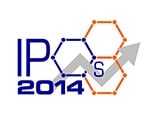 Can a fledgling biotech still plotting early-stage studies of its cutting-edge cancer drug technology mount a successful IPO by mapping a radically short trip to the FDA?
Can a fledgling biotech still plotting early-stage studies of its cutting-edge cancer drug technology mount a successful IPO by mapping a radically short trip to the FDA?
Kite Pharma plans to find out.
Three years ago, Kite chief Arie Belldegrun raised his first round of venture cash--a mere $15 million. Then a few days ago it added $50 million more, without naming all the sources. And on Monday it filed an S-1 with the SEC designed to pump in $115 million more.
Belldegrun is planning to use that money to finance a sprint to the FDA with its lead drug, KTE-C19, an anti-CD19 CAR T cell therapy. The plan is to mount a Phase I/II study for this drug in diffuse large B-cell lymphoma next year and then use the results to get an accelerated approval as a third-line treatment for very sick patients. And the biotech says it's already nailed down solid proof-of-concept data suggesting an objective response rate of 84% in an ongoing trial of lymphoma and leukemia patients being managed by the National Cancer Institute.
 |
| Kite Pharma CEO Arie Belldegrun |
Under other circumstances and offering different tech, this kind of a business plan would likely draw more chuckles than investment dollars. But Santa Monica, CA-based Kite is one of a select group of biotech companies that is exploring the therapeutic potential of genetically engineering T cells. By tailoring these killer immune cells to express chimeric antigen receptors (CARs) or T cell receptors (TCRs), the biotech believes it can direct a personalized immune system attack on cancer cells, offering a new approach in immuno-oncology that has gripped much of the industry over the past two years.
Belldegrun also has the kind of pedigree that biotech investors tend to love. He co-founded the cancer drug developer Agensys, which was sold to Astellas 7 years ago for up to $537 million, and he chaired the scientific committee at Cougar, which triggered one of those high-profile billion-dollar buyout deals from Johnson & Johnson ($JNJ). The NCI's resident immuno-oncology specialist and melanoma expert, Steven Rosenberg, is directing much of the early-stage investigative work.
According to the S-1, Kite has burned through $18.6 million to get to this point, a small sum in drug development circles. In turn, executives and directors at Kite have kept hold of 55% of the company's shares, and Belldegrun alone has managed to hang on to 22.5% of the equity.
Kite is by no means alone in the field, as it makes note in its SEC filing. In particular, Novartis ($NVS) and Juno Therapeutics have their own anti-CD19 CAR T programs. Celgene ($CELG), in collaboration with bluebird bio, poses a competitive threat. Then Lion Biotechnologies and Cellectis earn a mention.
One of the big questions that this IPO may help answer is whether biotech investors still have a big enough appetite for these kinds of early-stage offerings. The latest string of IPOs has seen a series of stumbles and forced discounts after dozens of offerings blitzed the market.
- here's the S-1